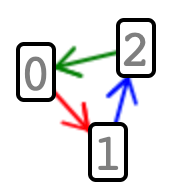comments
Val Town is a collaborative website to build and scale JavaScript apps.
Deploy APIs, crons, & store data – all from the browser, and deployed in milliseconds.
main.tsx
https://vez--a73436c2279e11f09d52569c3dd06744.web.val.run
A self-contained comments system Val. Just fork this val and you have a complete (but extremely minimal) comment system!
Call on the front-end using:
const MY_FORKED_VAL_URL = "https://vez-comments.web.val.run";
const getComments = async () => {
const response = await fetch(MY_FORKED_VAL_URL);
const json = await response.json();
return json;
};
const addComment = async (str) => {
try {
const response = await fetch(MY_FORKED_VAL_URL, {
method: "POST",
body: JSON.stringify(str),
});
if (response.status >= 400 && response.status < 600) {
/* error */
return false;
} else {
/* success */
return true;
}
} catch (e) {
/* error */
return false;
}
};
Here's an example of a blog post where I used the val for the comment system: https://vezwork.github.io/polylab/dist/demo/bidirectionalParse/. Check out "view source"!
